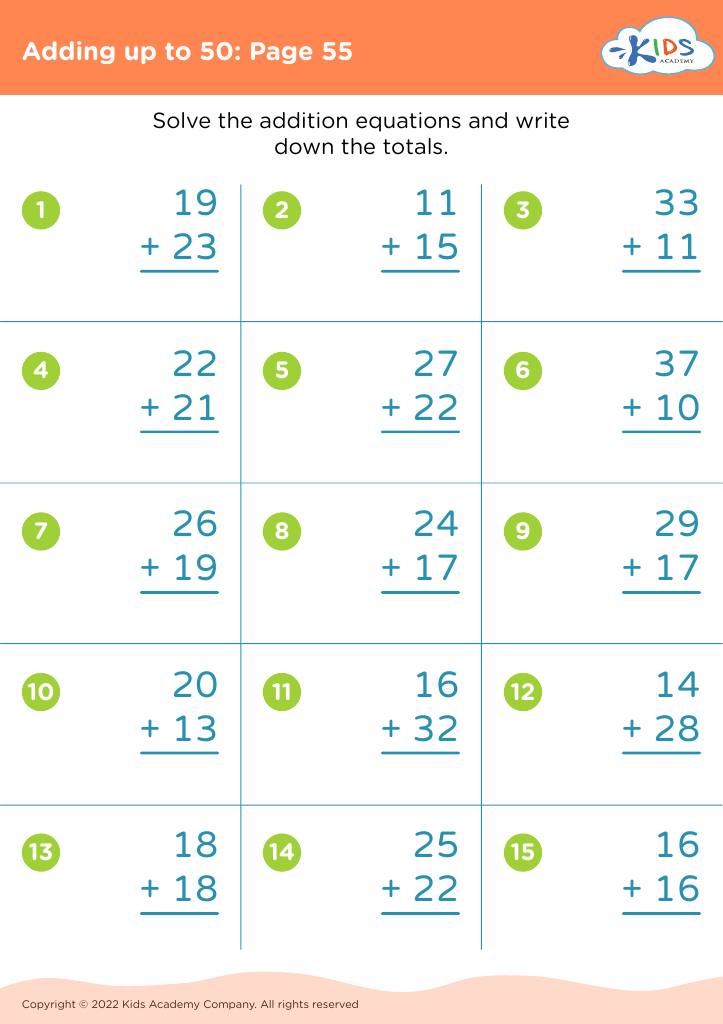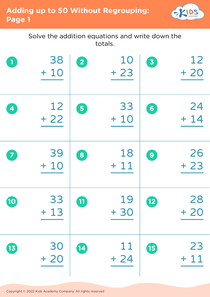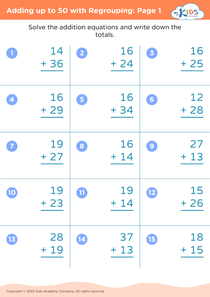Understand fractions Adding up to 50 Misc Worksheets for Ages 4-7
3 filtered results
-
From - To
Introduce your young learners to the world of fractions with our engaging “Adding up to 50 Misc Worksheets for Ages 4-7.” These specially designed printables help children grasp the concept of fractions while practicing addition skills. With easy-to-follow exercises, kids will learn to identify, compare, and combine fractions in a fun and interactive way. Perfect for classroom or home use, our worksheets cater to different learning paces, ensuring every child builds a strong foundation in math. Unlock your child’s potential and make learning fractions enjoyable and accessible with Kids Academy's expertly crafted materials.
Understanding fractions and basic arithmetic are foundational skills crucial for early mathematical development, and they foster critical thinking in young children aged 4-7. This period represents a prime stage for developing numerical comprehension and problem-solving abilities, which are essential throughout their education and everyday life.
Introducing the concept of fractions helps children grasp the idea of parts making up a whole, a fundamental concept that extends beyond mathematics, influencing how they perceive and interact with the world. For example, when kids understand how to share objects or divide tasks fairly, it fortifies their social and logical reasoning skills. Engaging with simple fractions also lays the groundwork for more advanced topics they'll encounter later in their education.
Learning to add numbers up to 50 enhances their arithmetic skills, ensuring comfort and familiarity with numbers. This proficiency makes future math learning more accessible and less intimidating. Furthermore, utilizing fun, contextual problem-solving activities keeps children engaged and eager to learn, crafting a positive attitude towards education.
Teachers and parents play pivotal roles in nurturing these skills. By providing supportive and enriched learning environments, they encourage children to explore, question, and understand these concepts profoundly. Early mastery of such basic yet central ideas builds self-confidence and a love for lifelong learning.













